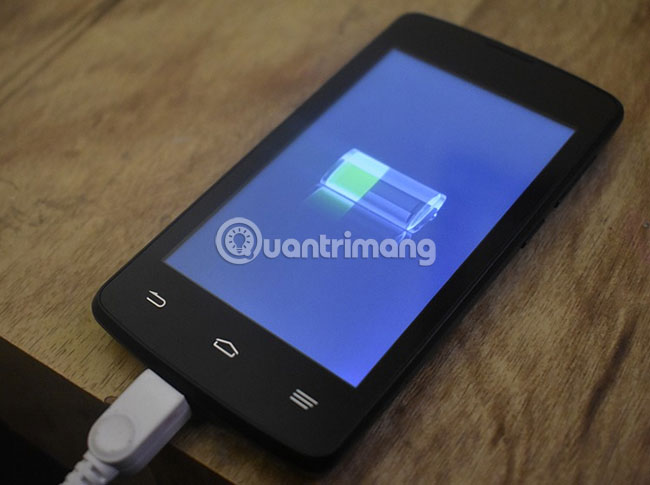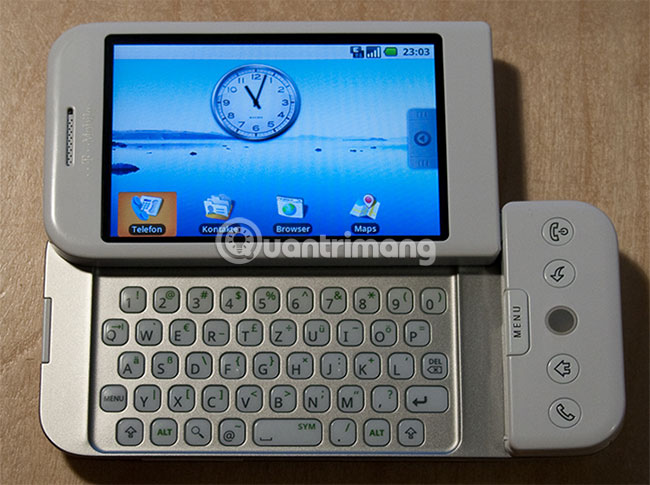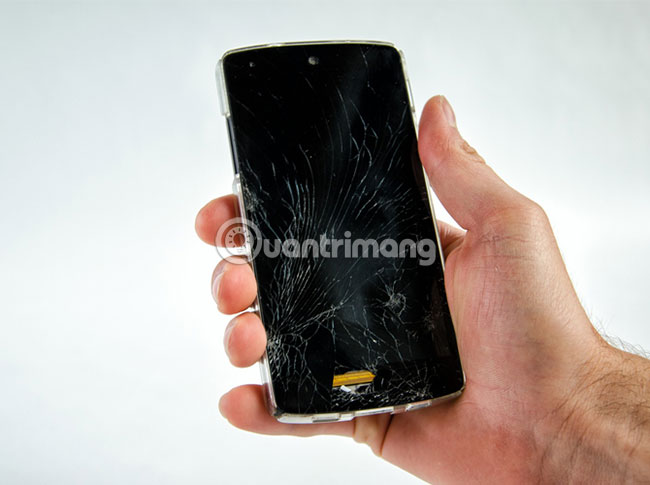7 warning signs are time to upgrade Android phones
When buying a new Android smartphone, you expect its life to be relatively long. A high quality phone will at least be useful for several years. However, as time goes by, you will find your phone starts to degrade, no matter how good you take care of it.
Replacing the device may be unavoidable, if it is too slow, broken, or something goes wrong. Here are some key signs that it's time to upgrade your Android phone.
When do you need to upgrade your Android phone?
- 1. The battery runs out quickly
- 2. Too slow to use
- 3. Missing updates or outdated updates
- 4. New applications are not running
- 5. Applications often stop working
- 6. Poor quality camera
- 7. The phone is broken or broken
1. The battery runs out quickly

If you're a smartphone addict, you've probably seen your smartphone battery very quickly run out of battery. There are many ways to increase battery life for Android phones, but battery life cannot last as long as before.
The main reason for this is that over time, the chemical components in the battery begin to degrade, meaning they will keep less and less charge. After several hundred times the battery charge cycle (approximately one or two years), the battery may lose 1/5 or more of its capacity to keep the energy charged.
That's why it's important to avoid charging overnight and limit unnecessary charging times.
If the battery does not keep the charge level as before, but you still use it the same, you will see the change. Instead of always keeping the charger at hand, many smartphone users should think about upgrading to get a phone with a new battery. New batteries will definitely have longer durations.
2. Too slow to use

Using your phone or tablet long enough, you will start to feel the device slow down. No one wants to spend time waiting for smartphones to respond. Opening the application may take a minute or very slow when registering the service, etc. It's annoying!
There are many reasons why phones are slow and in many cases, the age of smartphones is also part of the cause. Upgrading the Android version may require higher requirements for resources on the phone, including more CPU and RAM usage. New applications can also cause similar problems, especially if they take up a lot of resources on the device. The latest Android games are often the culprits of this problem.
Another problem could be the number of applications running in the background. The more applications consume resources in the background, the slower the phone becomes. You can solve this problem by closing applications more aggressively, but of course only if those applications are not useful for you.
The replacement of the phone will help you increase the resources for the phone software, whether it is the Android or the application you install.
3. Missing updates or outdated updates

A new Android release is usually released once a year around September. From Cupcake to Pie, all new Android versions come with new names and features, but the resource needs of they also increase.
However, do not expect the updates to be infinite. If you buy a top smartphone like Samsung Galaxy, you can upgrade once or twice to a newer Android version throughout its life. However, not every manufacturer deals with this, meaning that your phone may be outdated as soon as you purchase it.
What about security? Once the phone is outdated, the manufacturer will not bother to release any security updates, even if major upgrades are not part of the plan.
If you're worried about your phone being obsolete and you no longer receive updates, replacing a new phone is worth considering.
4. New applications are not running

Virtual reality VR is still in the development phase, but there are some excellent VR applications for Android. Unfortunately, you may find that new types of applications, such as special VR applications that consume a lot of resources, do not work well on older phones.
The same problem is true for Android games. Improvements in gameplay mean that the demand for RAM and graphics inside the phone is also larger. If your phone is too old, it won't perform as efficiently as a new phone with the latest technology.
The best way to test this is to install some resource-intensive applications. Try a few VR apps or games that require lots of resources and see how they work on your phone. If these applications don't work well, it's probably time to buy a new phone.
5. Applications often stop working

Android smartphones are man-made, so they are not perfect. The strange application incidents are inevitable. Phone is not always the cause of the problem. Sometimes, a bad or badly designed application will cause problems. In other cases, phone compatibility may be the problem. For example, an application can only run on the most modern phone model.
However, if you notice applications that stop working on your phone all the time, that could be a sign of a bigger problem with the smartphone you own. Applications may stop working because the demand they put on the phone (such as RAM or CPU) is too large. If available resources are not enough, the application will stop working.
You may also experience problems when the memory on the device is too low, especially for applications that store or access memory frequently. Newer phones will increase capacity to solve this specific problem.
6. Poor quality camera

In the selfie era, having a high-quality camera on a smartphone is essential for users with the most normal shooting needs. Unless you have a special hobby or a professional photographer, most people take photos with their phones. Newer phones create better photos.
There is very little that can be done to improve image quality if your camera is too poor. Photo editing applications can help optimize images, but they cannot improve the resolution of photos. This problem is most evident on the front camera, (previously) often inferior to the rear camera.
The only option if taking photos is important to you is to consider replacing new phones. A newer phone will come with better front and back cameras, although this will depend on the phone model you choose.
7. The phone is broken or broken

Nothing exists forever. If the screen breaks, the button is broken or the cover is cracked, then your phone will no longer be usable.
Natural wear (such as when you press too hard on the physical buttons of the phone) can also be a part of the cause. Sometimes internal components, such as the phone's flash storage, fail without a clear reason.
Damage, whether for a long time or immediately, will somewhat limit the effectiveness of the phone. Deciding whether you can deal with a broken phone and continue to use it depends on you. To solve the problem of broken components, there are few choices, in addition to upgrading the phone.
Whether derived from natural wear over time or obsolete, no smartphone will exist forever. Some components, such as phone batteries, have a limited shelf life. Other parts, like the CPU and camera, become obsolete when you compare them to newer phones.